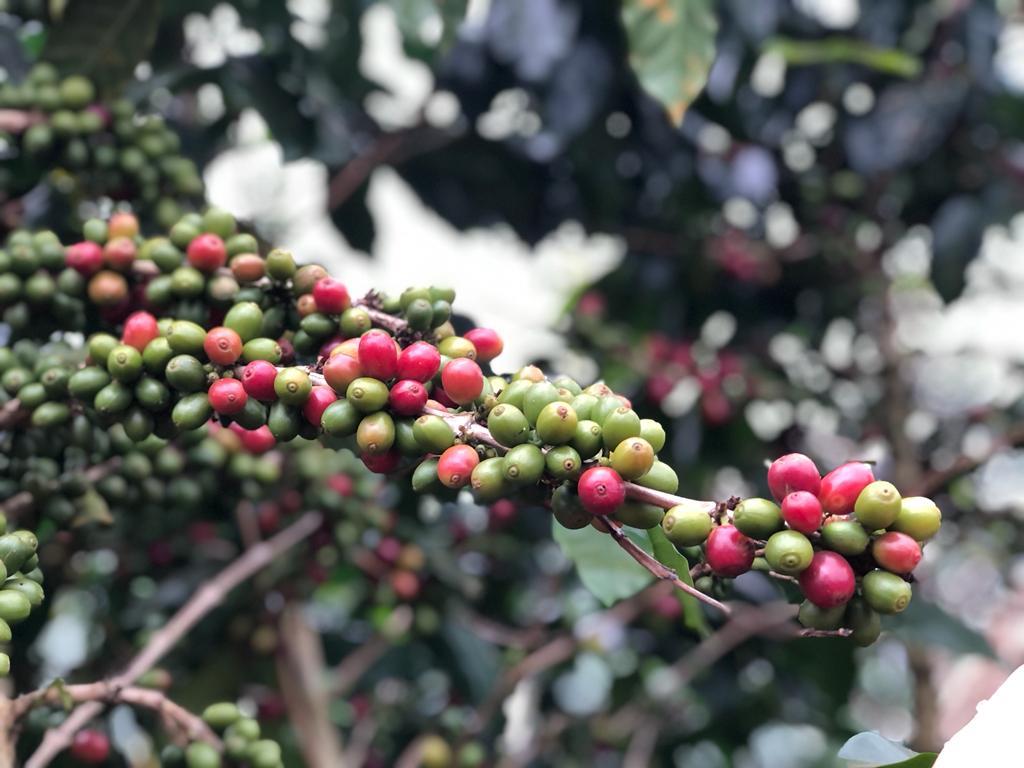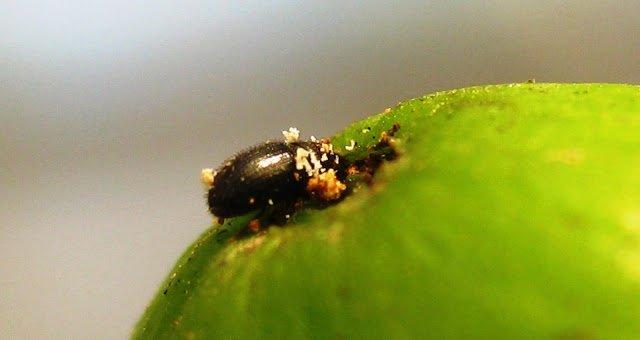Waves of Challenges await the Bolaven Plateau’s 2021 Harvest Season

Paksong, LAOS, 13 October, 2021 – Heavy rains, strong winds, and challenges brought about by the pandemic ravages through the plateau cause rising uncertainty and anxiety as farms prepare to begin the harvest season.
World coffee consumption has been growing steadily for the past five years, especially specialty coffee trade. However, Covid-19 has dampened the demand as shops were forced to close or operate at lower capacities to accommodate safety and hygiene policies. Now, two years in, policies surrounding the pandemic has eased considerably, people have settled into the new normal, and the availability of vaccines has only helped to grow renewed confidence in consumers to go out of their homes.
With an upcoming revival in demand, coffee supplies has to be able to keep up. Yet, coffee stocks worldwide are in deficit due to various factors such as shipping issues, climate change, and Covid-19. While these challenges to the coffee industry seem worlds away, Laos is opening its coffee harvest season with the same worries.
Weather and Climate
Past seasons has always been greeted by dry weather which helps with harvesting and processing of coffee cherries into green beans that are ready to be exported to local roasters or international buyers. However, as the harvest season close in, the heavy downpour and winds in recent weeks are worrying as it will affect yields if the rains do not stop. A spokesperson from Kim Yen Agricultural Development, a company that works with farmers on the ground, commented that the plateau is deep with apprehension as it continues to rain unrelentingly.
Ripe coffee cherries are highly susceptible to fall to the ground from the rain and winds as they do not have a strong grip on its branches. Consequently, by the time pickers get to them, these cherries might have already fermented causing a bad flavour to develop. The cherries that did not fall may not be in good condition either. They may experience cracking, which occurs when a lot of water is quickly absorbed and the cherry peel is forced apart causing the sweet mucilage to seep out of the cracks. This is especially detrimental to farmers who processes honey washed beans.
Evidently, both are undesirable outcomes which will result in poor cup score or worse – the lost of its specialty coffee status.
If dry weather was always the norm, why is it different now? The larger picture points towards climate change. The rising temperatures and new erratic rainfall patterns are especially crippling towards the agriculture industry. Especially Arabica coffee species due to their sensitivity towards temperature and rainfall changes.
Pests
Changes in climate conditions will also lead to other problems, such as pests. These delicate varieties are at higher risk of pest infestations (e.g. coffee berry borer beetle) that once found high altitudes of Arabica farms too cold to survive and thrive. Jaramillo et al.’s research on the relationship between temperature and the borer beetle, has shown that due to rising temperatures worldwide, the insect can now be found at higher altitudes.
According to the Food and Agriculture Organisation of the United Nations, the coffee berry borer beetle is a relatively new problem in Laos. These small beetles tunnel into cherries to lay eggs and are difficult to catch. The issue is further compounded as the majority of Laos’ coffee crops are grown organically – making it difficult to fight against or prevent the pest.
Not only do farmers have to worry about damage control from the weather and pests, the ever evolving Covid-19 situation is stacked against them.
Below. Coffee Borer Beetle. PHOTO: ARANGO SPECIALTY COFFEE

Covid-19 and its Issues
Transportation and Social Distancing
By now, everyone should be aware of Covid-19 measures such as wearing of face masks, 1-metre social distancing, and washing our hands regularly, these practices are crucial to help curb the spread of the virus. However, not all places are able to uphold such measures due to lack of infrastructure. Consequently, there might be a compromise between efficiency and safety; the Bolaven Plateau is one such place troubled with such a dilemma.
The standard practice is a shuttle service provided by the respective farms, picking up workers from the various villages and dropping them off at the plantation; similarly, from the plantation back to the village. But these services are not equipped to ensure adequate social distancing between passengers due to cost saving reasons. Considering other financial issues that are weighing on the farmer’s mind, such as the potentially bad harvest due to the rains and falling market prices of specialty coffee beans due to sluggish demands at the moment brought about by Covid-19. The additional rounds through the village or increase in shuttle services might be financially beyond the means of the plantation as the majority of farms in the plateau are smallholder farmers with little resources and financial breathing space.
Below. Shuttle Service to Coffee Farm. PHOTO: SIRINA SISOMBAT

The Problem of Testing and Identification
Even if these collective issues have been mitigated, there exist another set of problems – identification of Covid-19 positive workers. Workers who are asymptomatic but carriers of the virus are like landmines concealed and waiting to explode on unsuspecting people. Without access to regular testing equipment and medical facilities, the continuous movement of people during the season will be sure to put the wider community at risk.
However, the harvest season cannot be without experienced workers as coffee cherries are hand-harvested to ensure that only ripe fruit are picked. This has a direct correlation to quality, especially for specialty coffee producers – a direction Laos is moving its coffee industry towards. Particularly so this year, where the season is beginning with bad weather and under lockdown conditions. Without a guarantee of adequately skilled workers, defects to the harvest or risk of low-quality coffee will have a ripple effect down the value chain, impacting not only the farmers but also roasters and traders.
Outlook
Looking into the future, it seems the coffee industry will face many obstacles. The changing patterns of rainfall and temperature will cause erratic flowering of the coffee plants, thus, affecting harvest periods. Furthermore, it seems the Covid-19 pandemic will not be resolved in the coming years, and there are no indication towards what Laos’ next steps are for the industry. There are no easy answers nor solutions to the current situation of the Bolaven Plateau but to simply carry on.
Specialty coffee producers must continue to care about quality but they should not sacrifice, compromise or ignore the welfare of the workers. In uncertain times like these, we must ask ourselves how can we support the community around us. Not just relying on governments, but private organisations should also assume corporate social responsibility to the country they are operating in; not just ensuring fair trade practices.

